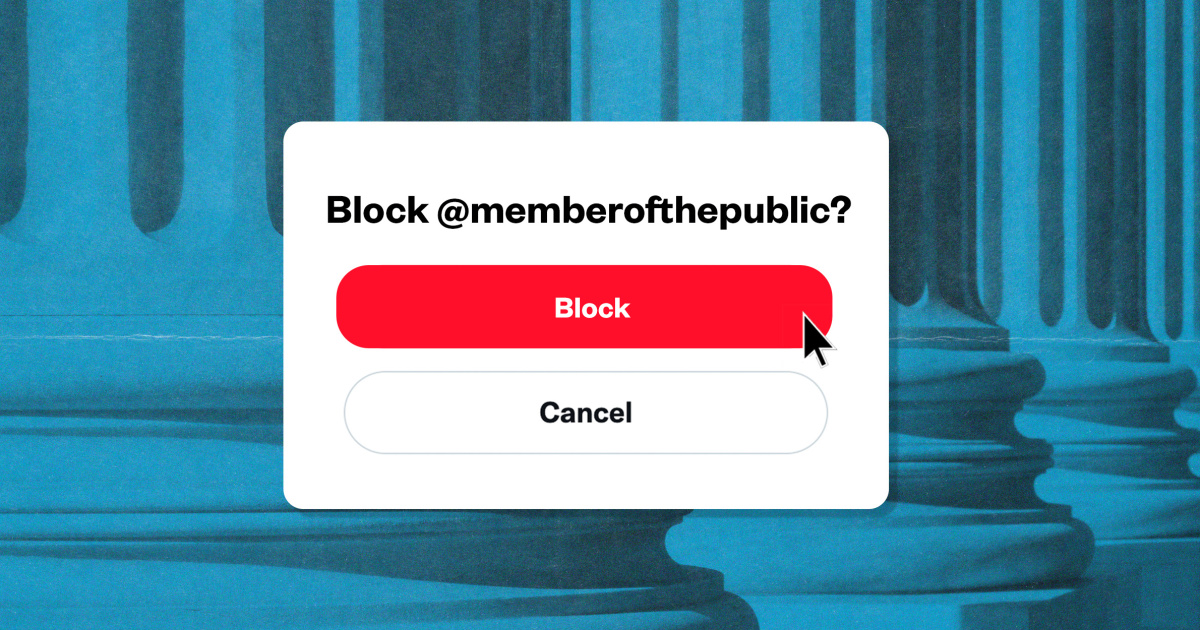WASHINGTON — The Supreme Court agreed Monday to decide whether people can sue public officials who block them on social media, a legal issue left unresolved in a previous case involving former President Donald Trump’s Twitter account.
The court took up two separate cases involving much lower-profile figures: two members of the Board of Trustees for the Poway Unified School District in southern California and the city manager of Port Huron, Michigan. But the legal dispute is the same: Can blocking someone on social media result in a violation of free speech under the First Amendment of the Constitution?
It’s a recurring question that has arisen at all levels of government as elected officials increasingly use social media to engage with voters. The Supreme Court’s ruling will have a broad impact in guiding how lower courts handle these cases.
«As many courts have held, it doesn’t matter if you’re the president or a local city manager, government officials can’t block people from these forums simply because they don’t like what they’re saying,» said Katie Fallow, a attorney at the Knight Institute for the First Amendment at Columbia University, who was involved in the lawsuit against Trump. «The Supreme Court should reaffirm that basic principle of the First Amendment.»
In the California case, board members Michelle O’Connor-Ratcliff and TJ Zane in 2017 blocked Christopher and Kimberly Garnier, parents of students in the school district, from commenting on their Facebook pages and, in the O’Connor-Ratcliff case, responded to her posts on Twitter. Zane has since left office.
The Garniers’ frequent comments were not profane or violent, but rather repetitive and prolonged, the San Francisco-based US Court of Appeals for the Ninth Circuit found in a 2022 ruling in favor of the couple, which upheld a similar ruling by a federal judge in the Southern District of California.
The appeals court concluded that the elected officials were acting in their official capacities and that the social media accounts are akin to a public forum. The court also rejected the officials’ argument that their social media pages were not official channels for the public to communicate with the government.
The Michigan case arose in March 2020 when the Covid-19 pandemic broke out. City Manager James Freed posted information on his Facebook page, describing him as a «public figure,» about the city’s efforts to address the public health crisis.
One resident, Kevin Lindke, posted comments criticizing the city’s response, leading Freed to block it.
Freed says the Facebook page, which is no longer active, was a personal page. He used it to share photos of his family and comment on his daily activities, he added.
In a June 2022 ruling, the US Court of Appeals for the Sixth Circuit, upholding a lower court ruling, said Freed was not acting in his official capacity and therefore his activity on Facebook was not constituted a «state action» that could give rise to a lawsuit.
In 2021, the Supreme Court threw out a similar lawsuit brought against Trump because by that time he had left office and the case was moot, meaning the legal issue was left unresolved. At the time, Twitter had also banned Trump’s account, though the company’s new owner, Elon Musk, changed course. In Trump’s case, the courts ruled against the president, noting that he often used his Twitter account to make official announcements.
Conservative Justice Clarence Thomas wrote at the time that the case highlighted that «the application of old doctrines to new digital platforms is rarely straightforward.» While Twitter could be seen as a public forum in some ways, in other ways it’s a private space over which the company has broad power, Thomas said, noting his decision to ban Trump.

